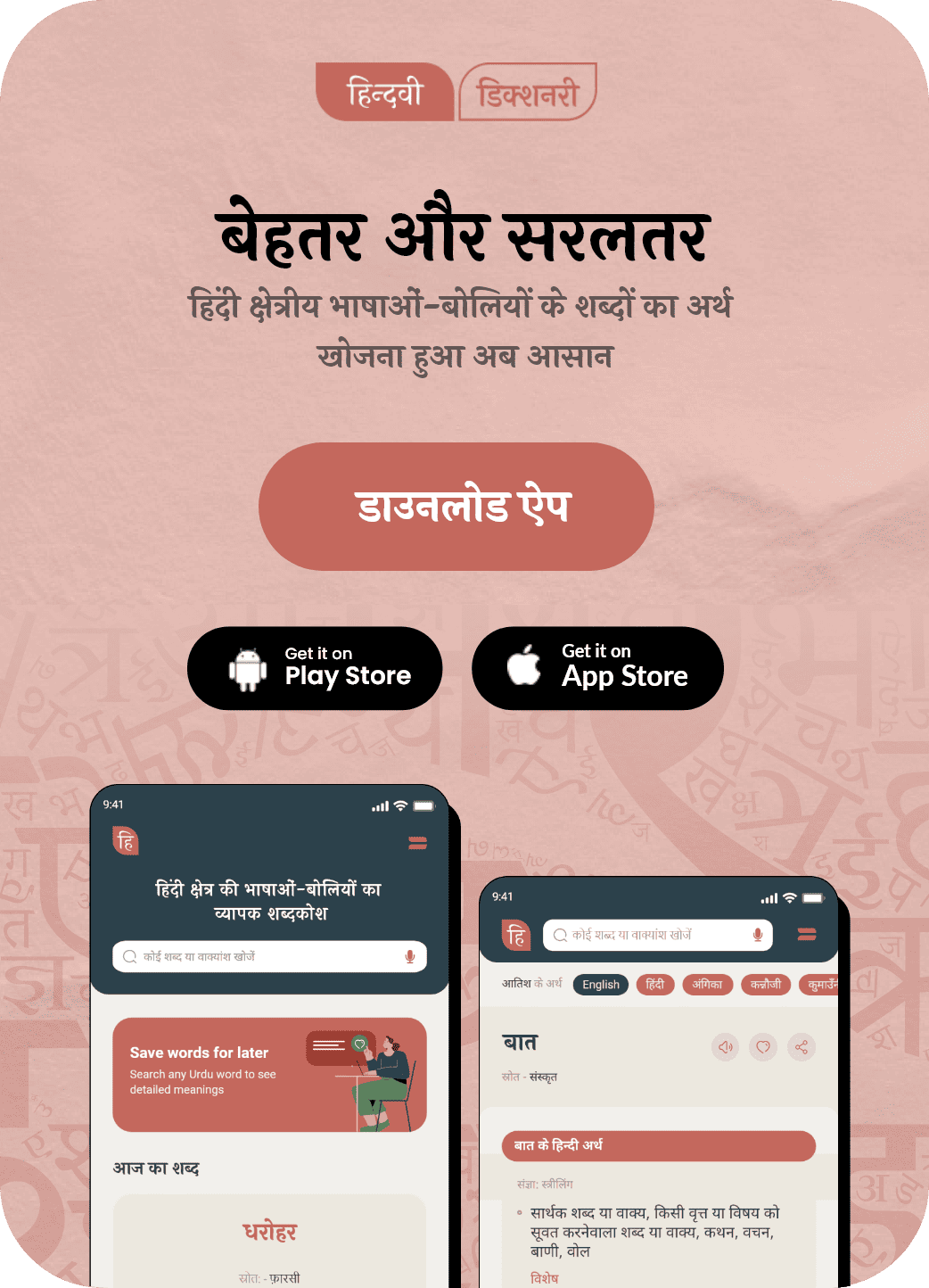नवीनतम ब्लॉग

- by Atifa Haroon
- ___
- 31 August 2023
Shayari Mein Shahr: Names of Cities in Urdu Poetry
Hello, dear readers! Get ready to dive into the captivating world of Urdu poetry, where cities step into the limelight and tell their captivating stories through the elegant art of shayari ...continue reading
और पढ़िए
- by Atifa Haroon
- ___
- 17 August 2023
Adaakaari Mein Urdu: Bollywood Moments Featuring Urdu Words
Welcome to the mesmerizing realm of Bollywood adakari (acting) and its timeless its enduring romance with Urdu! In the world of Bollywood, our exquisite Urdu language has been a constant companion to writers, lyricists, and adakaar (actors) alike ...continue reading
और पढ़िए
- by Atifa Haroon
- ___
- 31 July 2023
San’at-e-Tazaad: The World of Opposite-Attracting Oxymorons in Urdu
Well, hello there, dear readers! Prepare to be whisked away into the mesmerising world of oxymorons, or as we like to call them in Urdu, san'at-e-tazaad ...continue reading
और पढ़िए
- by Atifa Haroon
- ___
- 18 July 2023
Arz Kiya Hai: The Vocabulary for Mushairas
Ah, the world of Mushaa’iraas, a haven for all Urdu enthusiasts! If you're a lover of this beautiful language, then Mushaa’iraas are undoubtedly the highlight of your calendar ...continue reading
और पढ़िए
- by Atifa Haroon
- ___
- 26 June 2023
Stories Behind Sayings: Dodging A Dance Performance
In the realm of life's little inconveniences, how often do we find ourselves coerced into tasks that we neither desire nor excel at ...continue reading
और पढ़िए
- by Atifa Haroon
- ___
- 02 June 2023
Matlab: All That Its Meaning Can Mean
Ladies and gentlemen, have you ever stopped to ponder the sheer magnitude of a single word's potential meanings? It's a curious thing, really. We toss these words around like confetti, never truly acknowledging their multifaceted nature ...continue reading
और पढ़िए
- by Atifa Haroon
- ___
- 08 May 2023
Word Builders: Expanding Vocabulary With ba-
Hey there, word wizards! I think we’ll all approve to the notion that a good companion enroute a long journey or during a taxing task is what we all really need to get through ...continue reading
और पढ़िए
- by Atifa Haroon
- ___
- 05 April 2023
Urdu: The Lingua Franca of 12th Century India
Many people are aware of the fact that Urdu originated in northern India and spread across the entire subcontinent henceforth. But very few people know that there was a time when Urdu was the most commonly spoken language in mediaeval India ...continue reading
और पढ़िए
- by Atifa Haroon
- ___
- 23 March 2023
Stories Behind Sayings: Being On God’s Side
Has it ever happened that you made up your mind about something, but then decided to give it a shot of fate or destiny ...continue reading
और पढ़िए
- by Atifa Haroon
- ___
- 02 March 2023
Mizaaj And Majaaz: The 'z' - 'j' Confusion Explained
The mistaken interchangeability of the ‘z’ - ‘j’ sounds in Urdu is perhaps the most common one amongst speakers. When ‘sabzi’ becomes ‘sabji’ or when ‘mujrim’ becomes ‘muzrim’, Urdu speakers cannot help slightly cringing at the brutal replacement of ...continue reading
और पढ़िएसब्सक्राइब कीजिए
आपको नियमित अपडेट भेजने के अलावा अन्य किसी भी उद्देश्य के लिए आपके ई-मेल का उपयोग नहीं किया जाएगा।
बेहतर और सरल अनुभव के लिए हिन्दवी डिक्शनरी ऐप
डाउनलोड कीजिएक्या आप वास्तव में इन प्रविष्टियों को हटा रहे हैं? इन्हें पुन: पूर्ववत् करना संभव नहीं होगा


